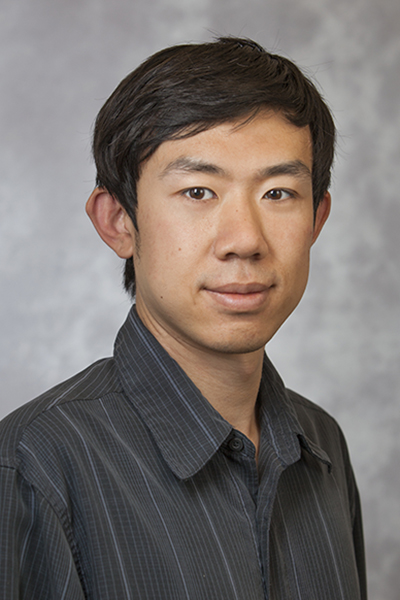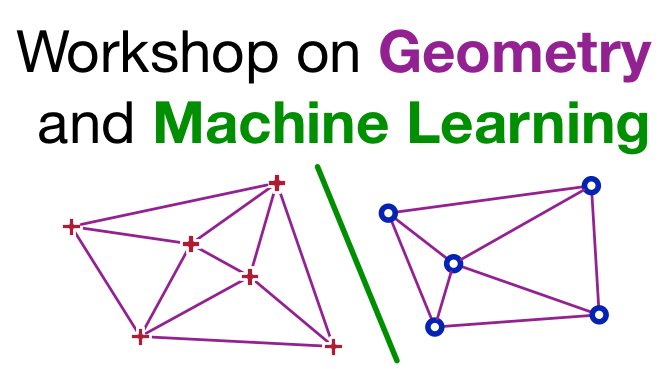
 5th Workshop on Geometry and Machine Learning
5th Workshop on Geometry and Machine Learning
| 1:20 - 2:00 | Rong Ge (Duke University) | Geometry and Landscape for Nonconvex Functions |
 |
Rong Ge is an assistant professor at Duke University. He received his Ph.D. from Princeton University, advised by Sanjeev Arora. Before joining Duke Rong Ge was a post-doc at Microsoft Research New England. Rong Ge's research focuses on proving theoretical guarantees for modern machine learning algorithms, and understanding the optimization for non-convex optimization and in particular neural networks. Rong Ge has received NSF CAREER award and Sloan Fellowship. | Nonconvex optimization is a popular approach in machine learning. In the recent years, a lot of progress on nonconvex optimization relied on geometric properties for the landscape of nonconvex objective functions. In this talk we will briefly survey some geometry properties that are known to make nonconvex optimization easy, as well as some geometric properties for the landscape of overparametrized deep neural networks that we don't fully understand. |
| 2:05-2:18 | Siddharth Barman, Ramakrishnan Krishnamurthy, Saladi Rahul (Indian Institute of Science) | Optimal Algorithms for Range Searching over Multi-Armed Bandits |
| 2:20-2:33 | Michael Joswig, Marek Kaluba (Karlsruher Institute fur Technologie), Lukas Ruff | Geometric Disentanglement by Random Convex Polytopes (slides) |
| 2:35-2:48 | Pantea Haghighatkhah, Wouter Meulemans, Bettina Speckmann, Jerome Urhausen, Kevin Verbeek (TU Eindhoven) | Obstructing Classification Via Projection |
| 3:00-3:13 | Rolando Kindelan, Jose Frias, Mauricio Cerda, Nancy Hitschfeld (University of Chile) | Classification based on Topological Data Analysis |
| 3:15-3:28 | Henry Kvinge, Zachary New, Nico Courts, Jung H. Lee, Lauren A. Phillips, Courtney D. Corley, Aaron Tuor, Andrew Avila, Nathan O. Hodas (U Washington & PNNL) | Fuzzy Simplicial Networks: A Topology-Inspired Model to Improve Task Generalization in Few-shot Learning |
| 3:30-3:43 | Mustafa Hajij, Kyle Istvan, Ghada Zamzmi (Santa Clara University) | Geometric Message Passing Schemes with Cell Complex Neural Networks |
| 3:45-3:58 | Mikkel Abrahamsen, Linda Kleist, and Tillmann Miltzow (Utrecht University) | Training Neural Networks is ER-complete |
| 4:00-4:13 | Apostolos Chalkis, Vissarion Fisikopoulos (National & Kapodistrian University of Athens), Marios Papachristou, Elias Tsigaridas | Truncated Log-concave Sampling with Reflective Hamiltonian Monte Carlo |
| 4:15-4:28 | Alejandro Flores-Velazco and David M. Mount (U Maryland) | Boundary-Sensitive Approach for Approximate Nearest-Neighbor Classification |